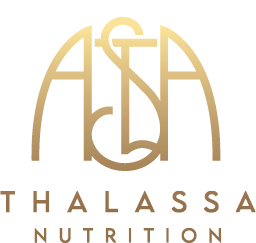Calorie-restriction dieting increases the life span
For decades, scientists have known that restricting calories puts the brakes on aging in everything from worms to mice. But, last year, University of Wisconsin researchers inched closer to the holy grail (human proof) when they found that r
hesus monkeys on a calorie-restriction diet were half as likely to get cancer, heart disease and diabetes than their calorie-munching peers. And less disease equals longevity. Indeed, those monkeys eating and aging “normally” died at three times the rate of those nibbling on 30 percent fewer calories.
“There is no question that calorie-restriction dieting increases the life span of any species,” says Eric Ravussin, Ph.D., director of the Nutrition Obesity Research Center at Louisiana State University. But the potential for longevity in people is still not clear. However, not everyone is waiting for the final verdict. Lisa Walford, 55, coauthor of The Longevity Diet, has followed a calorie-restriction diet for more than 20 years. She attributes her physical and mental vitality to yoga and consuming fewer calories.
Calorie-restriction dieting is about minimizing calories and maximizing nutrients. The first step is to determine the number of calories you need to maintain your body’s “set point,” which is the weight your body naturally gravitates toward if you make no effort to lose or gain weight. Then you aim to eat fewer calories, which is where the weight loss enters.
In animal studies, the biggest boon—a 50-percent jump in life span—surfaces when calories are sliced by 40 percent, but the most people can reasonably expect to cut is 25 percent, says Ravussin. Researchers have tried to cut people’s calories by 30 percent, but volunteers find the diet unsustainable.
So, what does a 25-percent restriction look like? If you can consume 2,000 calories a day and maintain your “set point” weight, your new goal should be 1,500 calories. A typical day’s menu may include a bowl of lentil soup for lunch, and a heaping salad full of colorful vegetables for dinner. The motivation is to eat fewer calories and more nutritional foods.
Obesity increases the likelihood of many diseases such as cancer and diabetes, but being very thin also brings its own health problems and may also put the body under great stress. So, it is important to sustain yourself with enough food that maximizes the most nutrition known to man. By eating dark colored organic produce and sprouted beans like mung, garbanzo and adzuki plus adding quinoa and other whole grains like hulled barley, wheat berries and buckwheat, your body will thrive with these super foods.
To sum up, restricting number of calories consumed along with doing regular exercises will be the sanest course to ensure weight loss acquire physical fitness and lead a long and healthy life. It is unwise to opt for either calorie restriction or physical exercises and renounce the other as both are equally essential.

 no
no no
no no
no